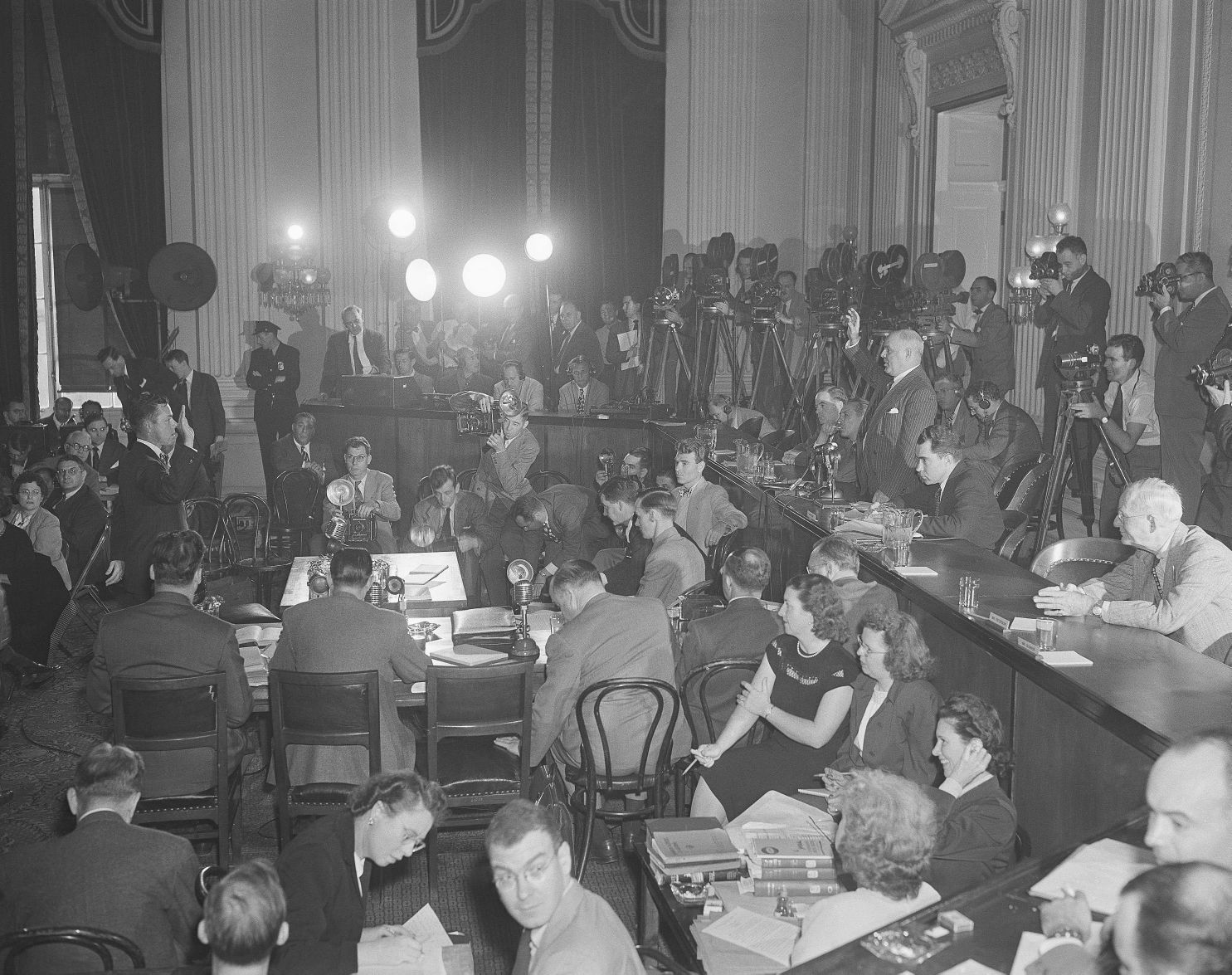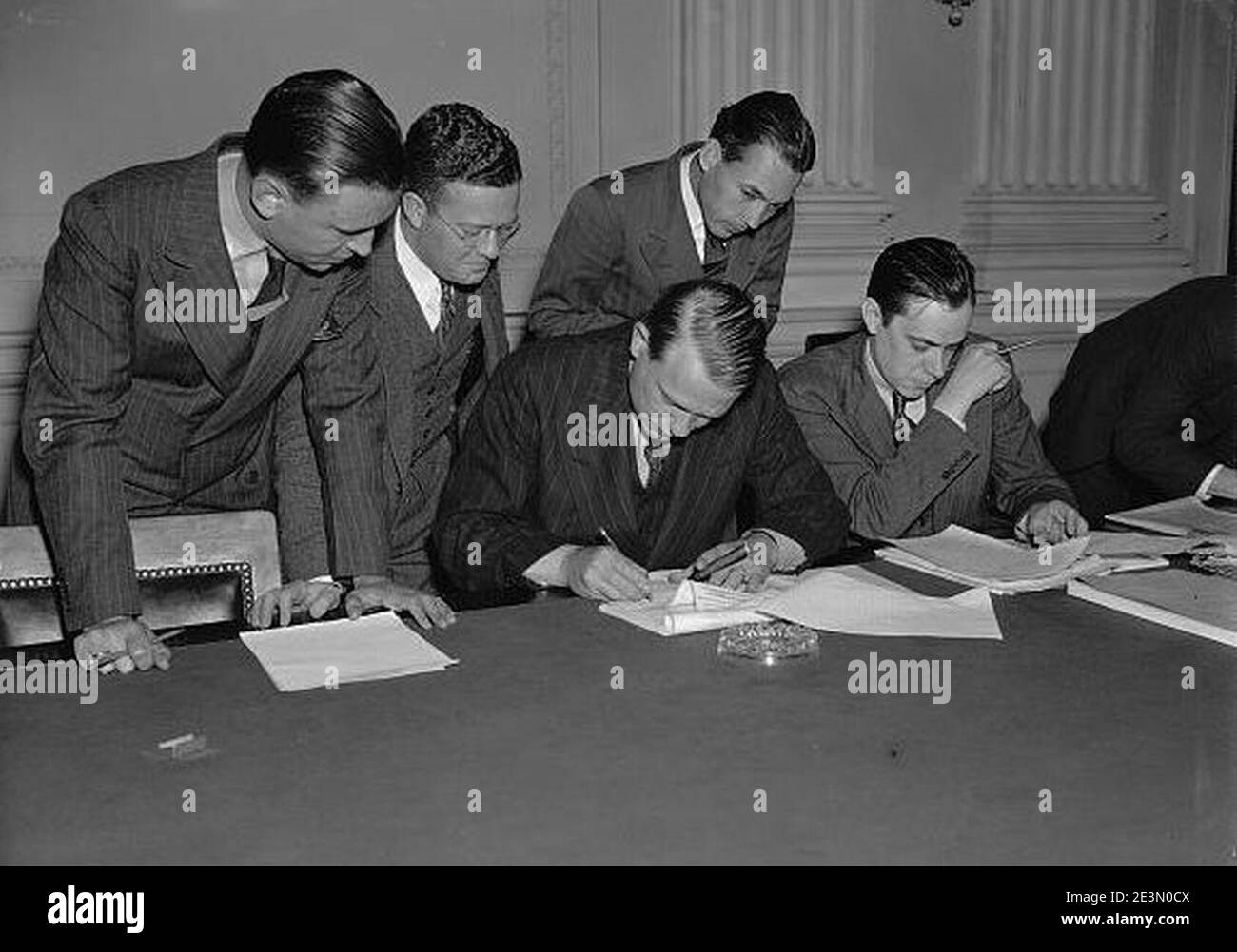Table Of Content

The committee was reconstituted under the leadership of a conservative New Jersey congressman, J. In 1947 an aggressive investigation began of suspected communist influence in the movie business. Dies, who had a flair for befriending influential journalists and attracting publicity, claimed communists had widely infiltrated American labor unions.
Earth Day 2024: Reduce plastic pollution [poster]
Its influence waned by the 1960s; in 1969 it was renamed the Internal Security Committee, and in 1975 it was dissolved. Every host nation of the summit has discretion in drawing up the guest list, and most if not all countries are routinely included. This is the first time the summit, which takes place every three or four years, is being held in the U.S. since its 1994 inaugural session in Miami. But the White House remains circumspect about who will actually attend the high-stakes regional conference. That includes whether Mexican President Andrés Manuel López Obrador, who leads Latin America’s second-most-populous country, will be among the leaders standing by Biden’s side. Topping the agenda is tackling the historic flows of migration and addressing the nearly 7 million people who have been displaced from their homes in the region, according to a senior administration official who spoke on condition of anonymity to describe summit preparations.
Communist Recruitment of Youth
Over nine days, the committee questioned numerous individuals within the industry about their affiliations and beliefs, as well as those of their colleagues. Many opponents of McCarthyism felt that it was a blatant violation of civil rights and an example of overreach by the government. They believed the practices during this period infringed on individuals’ right to free speech, freedom of association, and freedom from unreasonable searches and seizures. In 1947, the committee arranged a nine-day hearing for suspected communist activity and influence in the heart of the US film industry in Hollywood. The Hollywood Ten paid a high price for their actions at the HUAC hearings.
June 12, 1956: Paul Robeson Testifies Before HUAC
The Dies Committee also carried out a brief investigation into the wartime internment of Japanese Americans living on the West Coast. The investigation primarily concerned security at the camps, youth gangs allegedly operating in the camps, food supply questions, and releases of internees. With the exception of Rep. Herman Eberharter, the members of the committee seemed to support internment.

Cal Reporter
The third lawyer I went to see and offered a retainer to represent me before these hearings was an older lawyer, and he was a better financially established lawyer . The activities before this committee would be too strenuous,” he thought, the publicity would be harmful. The first lawyer, whom I will call lawyer No. 1, holds high office in the Alameda County Bar Association. When I first approached this lawyer, he told me that he could see no reason why he could not represent me. The next day, however, he informed me that he felt that he could not do so because of the controversial nature and the publicity attendant upon hearings before this committee and because of his position in the county bar association.
Although it ceased issuing subpoenas that year, its operations continued until 1975. Its records are held by the National Archives and Records Administration as records related to HUAC. In 1945, HUAC was made a permanent committee and Democratic Party lawmaker Edward J. Hart became its chairman. The committee continued to investigate threats of treason or propaganda against the government. This time, its focus was largely on real and suspected communists in the US. Hamilton Fish III, an anti-communist, chaired the Fish Committee in 1930 to investigate suspected communist activities in the US.

HUAC investigated Communist Party infiltration
SWG activists swung back into action and petitioned for recognition by the NLRB. In 1938, after months of contentious hearings, the feds oversaw an election to decide whether the SP or the SWG would be the designated bargaining agent for Hollywood screenwriters. Henceforth, it would be the buffer between the screenwriters and the studios. What finally convinced the independent brokers to embrace the logic of strength in numbers was a series of draconian salary cuts implemented by the Depression-wracked studios. In 1933, a group of politically animated screenwriters, including future Hollywood Ten members John Howard Lawson and Lester Cole, decided the time was ripe to organize the ranks into a Screen Writers Guild.
A conservative Democrat who had supported rural New Deal programs during Franklin Roosevelt's first term, Dies had become disillusioned when Roosevelt and his cabinet demonstrated support for the labor movement. The House Un-American Activities Committee was empowered for more than three decades to investigate "subversive" activity in American society. The committee began operating in 1938, but its greatest impact came following World War II, when it engaged in a highly publicized crusade against suspected communists. An investigative grand jury upheld the accusations and found the witnesses guilty as charged. The Hollywood Ten lost an appeal to an appellate court, and a conservative Supreme Court refused to hear the case. As a result, the Ten were forced to serve up to a year in a federal prison.
These events initiated the studios’ practice of firing and blacklisting artists with suspected communist connections. The global environment of the Cold War (1945–91) after World War II allowed the committee to be particularly aggressive and manipulative in its tactics. Fear of communists, foreigners, and independent thinkers made the American public tolerant of HUAC's actions. As a result, many people were harassed, and some found their lives irrevocably changed as a result. The committee employed several controversial methods to accomplish its goal of ferreting out suspected Communists. Typically, an individual who raised the suspicions of HUAC received a subpoena to appear before the committee.
As stated above, McCarthyism refers to a period of intense anti-Communist suspicion in the United States during the early 1950s, named after Senator Joseph McCarthy who was the most public face of the Red Scare during this time. The Fish Committee strongly advocated for the empowerment of the United States Department of Justice to ensure that communists were kept out of the country. Like HUAC, these committees were established to investigate allegations of Bolshevik, German and communist activities in the US.
Episode 7: Are You Now or Have You Ever Been Hollywood Exiles CBC Podcasts - CBC.ca
Episode 7: Are You Now or Have You Ever Been Hollywood Exiles CBC Podcasts.
Posted: Mon, 04 Mar 2024 08:00:00 GMT [source]
The committee targeted several organizations and notable people, including the American Civil Liberties Union and aspiring president, William Z. Foster, who was a communist. From its inception in 1938 until it was dissolved in 1975, the House Un-American Activities Committee (HUAC) took a prominent role in the investigation of communist activity in the United States. House of Representatives performed an important function, its critics contend that its abuse of power trampled important First Amendment rights, such as freedom of expression and freedom of association. On October 20, 1947, the committee began hearings in Washington in which prominent members of the film industry testified. On the first day, studio heads Jack Warner and Louis B. Mayer denounced what they called "un-American" writers in Hollywood, and swore not to employ them. The novelist Ayn Rand, who was working as a screenwriter in Hollywood, also testified and denounced a recent musical film, "Song of Russia," as a "vehicle of communist propaganda."
In a flurry of activity, the newly formed committee, in 1938, began making accusations about communist influence in the United States. Sponsors of the motion to establish HUAC expected it to reduce the potential threat of foreign agents and subversive activities by communist and fascist interests. Under the leadership of Dies, however, the term “un-American” gained a broader definition, and many without communist or fascist ties were investigated.
The Dies Committee became a fixture in newspaper headlines as it held hearings focused on how politicians reacted to strikes by labor unions. In a press conference on October 25, 1938, Roosevelt denounced the committee's activities, in particular, its attacks on the governor of Michigan, who was running for reelection. HUAC is also occasionally confused with the Senate Subcommittee to Investigate the Administration of the Internal Security Act and Other Internal Security Laws, more commonly referred to as the Senate Internal Security Subcommittee or SISS. Res. 366, 81st Congress to study and investigate internal security laws and subversive activities -- a similar enough mandate to HUAC that it is considered to be the Senate equivalent. Un-American Activities Committee, House a committee of the US House of Representatives (HUAC) established in 1938 to investigate subversives. It became notorious for its zealous investigations of alleged communists, particularly in the late 1940s, although it was originally intended to pursue Fascists also.
Although the U.S. and its communist rival rarely confronted each other directly, they both attempted to extend their influence and promote their systems of government around the world. A number of Americans believed that their nation’s security depended on preventing the spread of communism, and this attitude created an atmosphere of fear and suspicion in many parts of the country. The end of HUAC came when it began to investigate opposition to the Vietnam War. Its 1967 and 1968 hearings investigating anti-war activists Abbie Hoffman and Jerry Rubin, both of whom attended the hearings at various times wearing a Santa Claus or a Revolutionary War patriot outfit, contributed to the rising unpopularity of HUAC. In 1969 its name was changed to the Internal Security Committee, and in 1975 it was abolished. Its investigations were the subject of several Supreme Court decisions that sought to define the scope of the constitutional power Congress had to hold hearings.


No comments:
Post a Comment